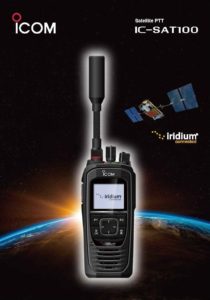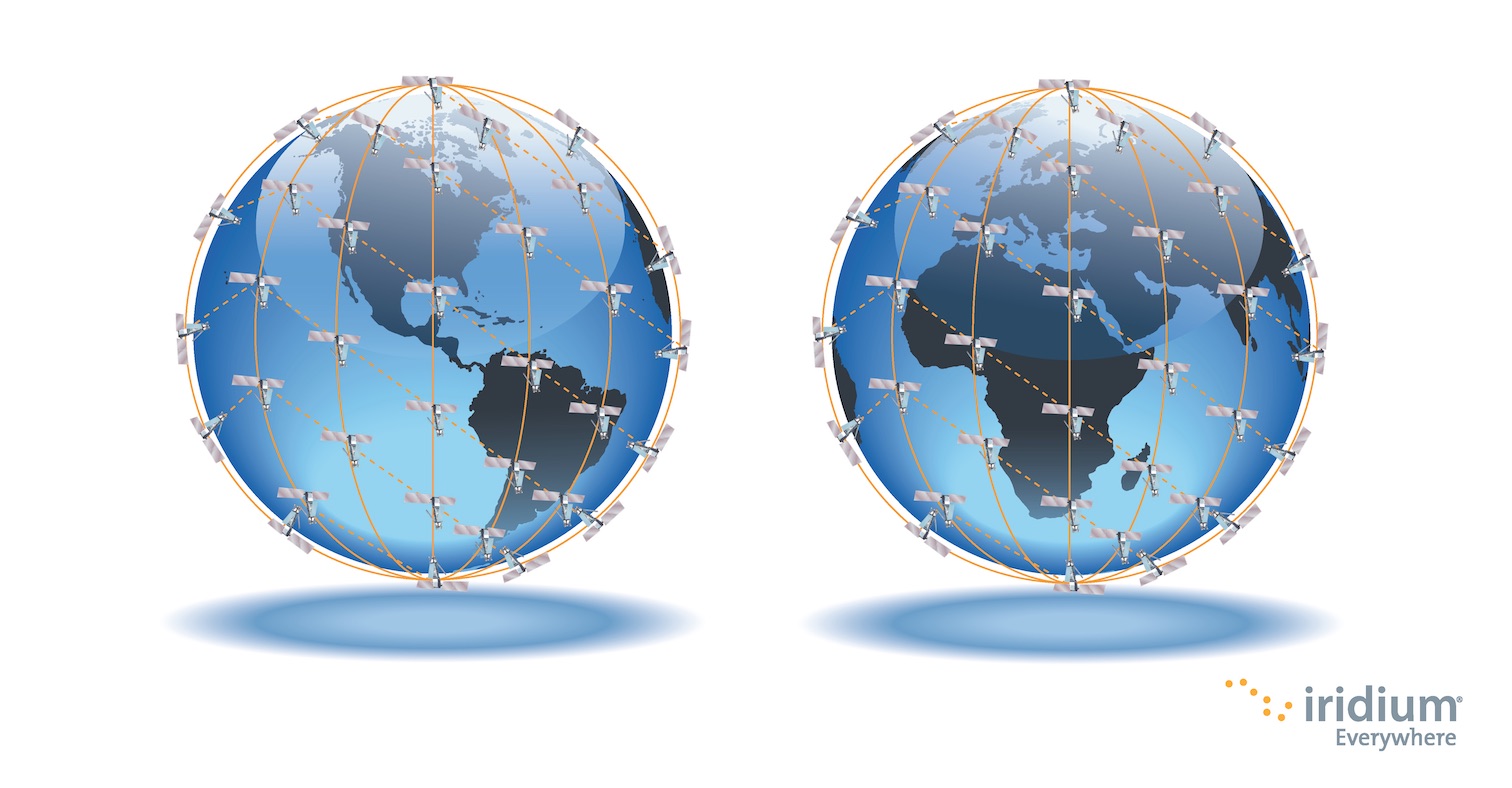Icom has got together with Iridium to develop and manufacture a new satellite radio called Satellite PTT. The radio will combine Icom’s 54 years of expertise and knowledge with Iridium’s satellite experience to provide a professional radio communications solution that will enable users to communicate whenever they want to and wherever they are in the world.
The Satellite PTT radio will be based on a professional handheld radio using the Iridium satellite communication network. It will enable real-time, multi-user communication throughout the world with only the push of a PTT (Press-To-Talk) button. Direct contact between Iridium’s multiple satellites will ensure a stable and reliable connection even if large-scale incidents occur.
“Icom has been developing various wireless communications equipment for use on land, sea and air for many years. The Satellite PTT project will become an important part of our product line-up that covers all areas from the surface of the earth to space,” Icom’s President Masataka Harima confirmed.
“The market has shown a clear demand for a PTT-only radio solution designed for the Iridium network,” said Joel Thompson, vice president, global product and service management, Iridium. “With Icom’s significant experience in the LMR sector, we believe they are the perfect partner to introduce what will be the world’s first truly global PTT-only handheld.”
Shipment time and price of the product were not yet fixed.
Unlike traditional geostationary satellites (eg ViaSat and HughesNet) which are fixed in place 22,236 miles above the equator – low-earth-orbit (LEO) constellations pioneered by the likes of Iridium are placed in much lower polar orbits so that one (or more) satellite(s) in the swarm is always passing overhead.
By being closer to the earth’s surface at around 485 mi (781 km) high, the need for cumbersome precisely aimed dish antennas is eliminated – and problems caused by the speed-of-light travel time are vastly diminished too. Iridium is best known for its global satellite voice phone service, and in the last two years has been fielding a new generation of satellites – Iridium NEXT, with advanced data capabilities well beyond what was possible before.
The Iridium network now has 66 satellites working in six polar orbiting planes (see above), each with 11 crosslinked satellites. In July the latest 10 were launched in the seventh evolution of the mission. In all, 81 satellites are planned with 75 going into space. Nine of those will serve as on-orbit backups while the other six will be ground spares.


